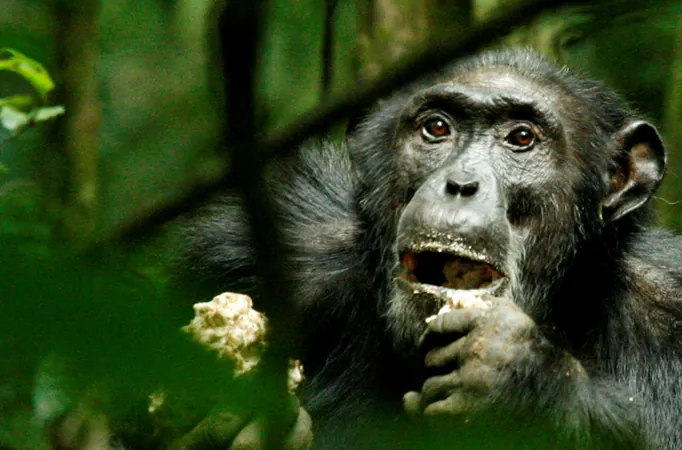
Genetic Adaptations of Wild Chimpanzees: Nature's Survivor Strategy Unveiled!
2025-01-12
Author: Siti
Researchers have made groundbreaking discoveries regarding the genetic adaptations of wild chimpanzees across 18 countries, examining genetic data from an impressive 388 individuals. Their findings reveal how different habitats shape genetic diversity within these primates, demonstrating that adaptation is not just a phenomenon of the environment but also a crucial survival strategy.
Adapting to Pathogens
Chimpanzees living in dense forest ecosystems face a unique challenge: a plethora of pathogens, particularly the mosquito-borne malaria parasite. The study highlighted that these forest-dwelling chimpanzees exhibited specific genetic adjustments aimed at increasing their resistance to diseases. Notably, some of these genetic changes correspond to those found in humans who have evolved to combat malaria.
Aida Andrés, an evolutionary geneticist from University College London and the lead author of the study published in the prestigious journal Science, notes, "In forest chimpanzees, we identify signatures of adaptation to pathogens, with the strongest signal being to malaria. This suggests a fascinating parallel in the adaptive strategies of both chimpanzees and humans against the malaria parasite."
Need for Further Research
However, Andrés cautions that while the study identifies potential genetic markers linked to disease resistance, further research is needed to determine if these adaptations truly confer resistance in wild populations. In contrast, chimpanzees in woodland-savannah habitats showed no significant genetic adaptation to malaria, likely due to lower exposure levels compared to their forest counterparts.
Global Health Implications
The World Health Organization (WHO) reported a staggering 597,000 malaria-related deaths globally in 2023, underscoring the urgency of understanding these adaptations not just in chimpanzees but also in human populations. With our closest genetic relatives sharing about 98.8% of our DNA, lessons learned from their adaptations could one day inform public health strategies for humans.
Range and Endangerment
The data was collected from an extensive range covering equatorial Africa, across 52 sampling sites including countries such as Uganda, Cameroon, Ghana, and the Democratic Republic of the Congo. Tragically, all species of chimpanzees are currently classified as endangered, facing myriad threats including habitat loss, poaching, and emerging infectious diseases. Estimates suggest that there are only between 170,000 to 300,000 chimpanzees remaining in the wild.
Conservation Needs
The implications of this research extend beyond mere academic interest. As climate change and habitat encroachment continue to alter the landscape, different chimpanzee populations will experience these pressures in varied ways. Andrés emphasizes, "Our findings suggest a dire need to conserve the rich genetic diversity of chimpanzees, which includes their unique adaptive potential. This approach is essential not only for the current populations but also for enabling these incredible creatures to adapt to future environmental shifts."
Conclusion
In essence, this research paints a hopeful yet cautious picture of the resilience and adaptability of wild chimpanzees. By conserving their genetic diversity, we may not only protect a vital part of our planet’s ecological fabric but also unlock secrets to our own survival amidst changing conditions. The survival story of chimpanzees could offer a crucial glimpse into the future of both wildlife and humanity.
 Brasil (PT)
Brasil (PT)
 Canada (EN)
Canada (EN)
 Chile (ES)
Chile (ES)
 Česko (CS)
Česko (CS)
 대한민국 (KO)
대한민국 (KO)
 España (ES)
España (ES)
 France (FR)
France (FR)
 Hong Kong (EN)
Hong Kong (EN)
 Italia (IT)
Italia (IT)
 日本 (JA)
日本 (JA)
 Magyarország (HU)
Magyarország (HU)
 Norge (NO)
Norge (NO)
 Polska (PL)
Polska (PL)
 Schweiz (DE)
Schweiz (DE)
 Singapore (EN)
Singapore (EN)
 Sverige (SV)
Sverige (SV)
 Suomi (FI)
Suomi (FI)
 Türkiye (TR)
Türkiye (TR)
 الإمارات العربية المتحدة (AR)
الإمارات العربية المتحدة (AR)